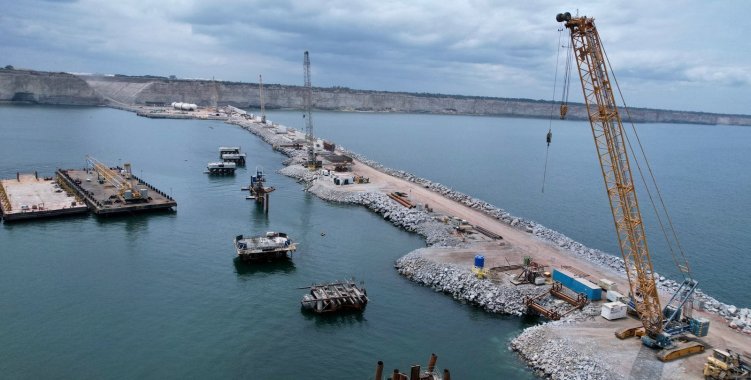The project will be presented this week in Brussels where it is expected to receive funding from the Global Gateway initiative, launched by the European Commission (EC) to promote smart, clean and secure connections in the digital, energy and transport sectors, hoping to mobilize 300,000 million of euros by 2027.
"It is a negotiation that then has to take place between Brazilian and European authorities, in which there may also be investment from Portuguese entities", explained to Lusa the president of the Port of Sines, José Luís Cacho, during the XIV Congress of the Association of Ports of Sines Portuguese Language (APLOP), which took place on Monday in Brasília, under the theme "Logistics Corridors, Sustainability and Innovation".
The Portuguese official also stressed that he is confident that the initiative will be well received by investors as the project aims to "increase trade flows and exchanges" between Portugal and Brazil.
In July, the Port of Sines and Companhia Siderúrgica Nacional do Brasil had already signed a memorandum within the scope of the Global Gateway initiative, and a memorandum of understanding was also signed with the Sociedade de Desenvolvimento da Barra do Dande, in Angola.
"Always in the logic of agribusiness, minerals, and energy", he stressed, referring to the South American giant, which is one of the world's breadbaskets and which in Porto do Pecém, in Fortaleza, capital of the state of Ceará, aligned with the energy ambitions of the Brazilian Government, it also intends to enable facilities for the export of green hydrogen, produced through the process of water electrolysis (separation of oxygen and hydrogen) and used, mainly, for the production of fertilizers for agricultural activities, but which could be used as fuel and industrial raw material for pharmaceutical products.
"Sines has a centrality, not only in relation to Europe and North Africa and West Africa, which will allow it to boost the growth of trade, particularly in agri-food products", considered José Luís Cacho.
Another advantage of this Sines-Pecém connection is the possibility of the transport of goods being intensified after the signing of the trade agreement between Europe and the Mercosur bloc (Brazil, Argentina, Paraguay, Uruguay), which is expected to be concluded at the end of the year.
Also on the sidelines of the Portuguese-speaking congress, the president of the Sines Business Association, Hugo Manuel Ferreira, considered that the Portuguese port, through this connection with Brazil, but also Barra do Dande, in Angola, can help to overcome the lack of cereals in Europe.
With Russia's invasion of Ukraine, "Europe felt a brutal increase in the price of cereals", he said, recalling that Sines has the 14th port handling cargo in Europe.
Hugo Manuel Ferreira also highlighted that with the closure of the Sines coal power plant, the port has more storage capacity. "The terminal is prepared for any type of cargo," he said.
On the Angolan side, the president of the Barra do Dande Development Society, Joaquim Piedade, told Lusa that the expectation is that, in 2026, around 860 hectares of this free zone project will already be completed with a maritime terminal and refinery.
Work on the Barra do Dande Ocean Terminal began in 2012, but was suspended in 2016, with the Government taking the decision to resume it in 2018.







